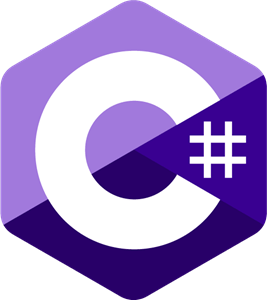Choosing the Right Date and Time Type in C#

C# provides a number of different date and time types, each with its own strengths and weaknesses. The most common types are DateTime, DateTimeOffset, DateOnly, and TimeOnly.
DateTime is the most general-purpose date and time type. It represents a point in time, typically expressed as a date and time of day. DateTime can be used to represent both local time and Coordinated Universal Time (UTC).
DateTimeOffset is similar to DateTime, but it also includes an offset from UTC. This makes it a good choice for representing times that are specific to a particular time zone.
DateOnly and TimeOnly are two new types that were introduced in C# 6. They represent the date and time components of a DateTime, respectively. These types are useful when you only need to represent a specific date or time, and you don’t need to worry about the time zone.
TimeSpan represents a period of time. It can be used to represent the difference between two DateTime values, or to represent a specific amount of time, such as “10 minutes” or “2 days 3 hours.”
TimeZoneInfo represents a time zone. It can be used to get the local time for a particular time zone, or to convert between different time zones.
When to Use Which Type
The following table summarizes when to use each of the date and time types in C#:
| Type | When to Use |
|---|---|
| DateTime | When you need to represent a point in time, regardless of the time zone. |
| DateTimeOffset | When you need to represent a point in time that is specific to a particular time zone. |
| DateOnly | When you only need to represent a date, and you don’t need to worry about the time zone. |
| TimeOnly | When you only need to represent a time, and you don’t need to worry about the date or the time zone. |
| TimeSpan | When you need to represent a period of time. |
| TimeZoneInfo | When you need to get the local time for a particular time zone, or to convert between different time zones. |
Example
The following code shows how to use the different date and time types:
using System;
using System.Globalization;
namespace DateTimeExamples
{
class Program
{
static void Main(string[] args)
{
// Create a DateTime representing the current time in UTC.
DateTime utcNow = DateTime.UtcNow;
// Create a DateTimeOffset representing the current time in Pacific Standard Time (PST).
DateTimeOffset pstNow = utcNow.AddHours(-8);
// Create a DateOnly representing the date of utcNow.
DateOnly dateOnly = utcNow.Date;
// Create a TimeOnly representing the time of utcNow.
TimeOnly timeOnly = utcNow.TimeOfDay;
// Get the local time for PST.
DateTime localNow = pstNow.ToLocalTime(TimeZoneInfo.Local);
// Print the values of all the date and time types.
Console.WriteLine("utcNow: " + utcNow);
Console.WriteLine("pstNow: " + pstNow);
Console.WriteLine("dateOnly: " + dateOnly);
Console.WriteLine("timeOnly: " + timeOnly);
Console.WriteLine("localNow: " + localNow);
}
}
}This code will print the following output:
utcNow: 2023-07-12 18:44:08.0000000
pstNow: 2023-07-12 10:44:08.0000000
dateOnly: 2023-07-12
timeOnly: 18:44:08
localNow: 2023-07-12 10:44:08